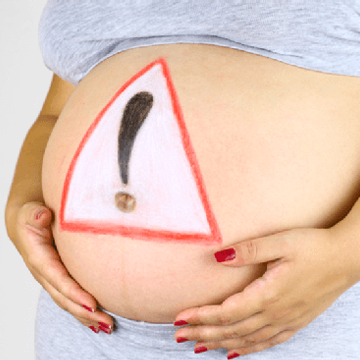Pregnancy is a natural process, but it can sometimes involve complications that may affect the health of the mother, baby, or both. Here are some common complications of pregnancy:
1. Gestational Diabetes
- High blood sugar levels during pregnancy.
- Can increase the risk of a large baby, preterm birth, and future type 2 diabetes.
2. Preeclampsia
- High blood pressure and protein in the urine after 20 weeks of pregnancy.
- May cause complications like organ damage or preterm birth if untreated.
3. Preterm Labor
- Labor that begins before 37 weeks of pregnancy.
- Can result in complications for the baby, such as underdeveloped organs.
4. Placenta Previa
- The placenta covers the cervix, which can lead to bleeding during pregnancy or delivery.
- May require a cesarean delivery.
5. Placental Abruption
- The placenta separates from the uterus before delivery.
- Can deprive the baby of oxygen and nutrients and lead to heavy bleeding.
6. Hyperemesis Gravidarum
- Severe nausea and vomiting that can lead to dehydration, weight loss, and nutrient deficiencies.
- More intense than typical morning sickness.
7. Anemia
- Low red blood cell count, often due to iron deficiency.
- Can cause fatigue, weakness, and complications during delivery.
8. Infections
- Infections like urinary tract infections (UTIs), sexually transmitted infections (STIs), and others (e.g., rubella, toxoplasmosis) can harm the mother and baby.
9. Ectopic Pregnancy
- The fertilized egg implants outside the uterus, typically in a fallopian tube.
- Requires immediate medical attention as it can be life-threatening.
10. Miscarriage
- Loss of pregnancy before 20 weeks.
- Often caused by genetic abnormalities, infections, or hormonal imbalances.
11. Stillbirth
- Loss of a baby after 20 weeks of pregnancy.
- May result from infections, placenta problems, or umbilical cord issues.
12. Rh Incompatibility
- Occurs when the mother’s Rh-negative blood type is incompatible with the baby’s Rh-positive blood type.
- Can lead to complications like anemia in the baby without treatment.
13. Gestational Hypertension
- High blood pressure during pregnancy without signs of preeclampsia.
- May lead to complications if it progresses to preeclampsia.
14. Excessive Weight Gain or Loss
- Can impact the baby’s growth and the mother’s health.
- Healthy weight management is essential during pregnancy.
15. Depression or Anxiety
- Mental health issues can arise during or after pregnancy (e.g., postpartum depression).
- Requires psychological support or treatment.

